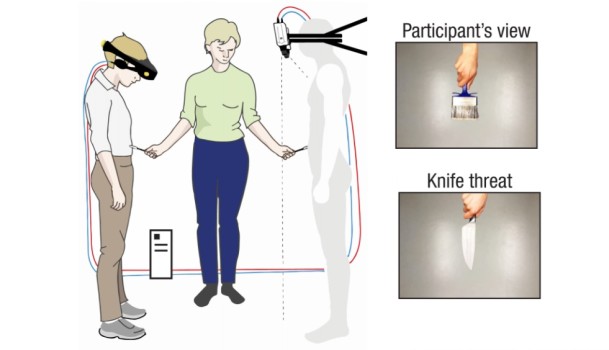
In a paper released today, neuroscientists from Sweden’s Karolinska Institutet have used virtual reality to find out how people feel when they think their body is invisible.
“This experience affects bodily self-perception and social cognition,” the authors wrote.
A person was primed to think they’re invisible by wearing a virtual reality headset, looking down, and not seeing a body. Then, they would see a paintbrush touching them where their body would be if visible — while, at the same time, a researcher touches their actual body with a paintbrush.
The person being tested would then see a knife coming at their invisible body in virtual reality and would react as if it was actually happening, which the researchers measured by checking the sweat response.
But when it came to another kind of stress — the stress of having a group of strangers stare critically at them — subjects were less nervous when they perceived themselves to be invisible.
The research could lead to new treatments for social anxiety, the researchers said.
- Kitely Mega Worlds on sale for $90 per month - July 19, 2024
- OpenSim regions up, actives down with summer heat - July 15, 2024
- People think AIs are conscious. What could this mean for bots in OpenSim? - July 12, 2024
